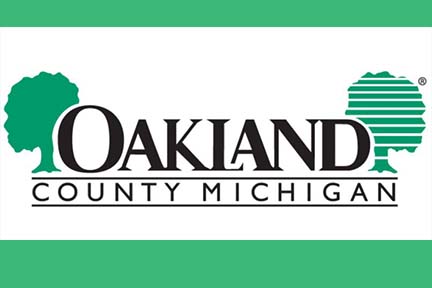
Governor Whitmer Makes Appointments to Boards and Commissions
LANSING, Mich. — Today, Governor Gretchen Whitmer announced the following appointments to the Michigan Women’s Commission, Michigan Board of Dentistry, Michigan Beef Industry Commission, Board of Barber Examiners, Military Appeals Tribunal, Statewide Housing Partnership, and the Michigan Wildlife Council, and Commission on Middle Eastern Affairs.
Today’s appointees represent Michigan’s young professionals, communities of color, seniors, and more. The appointees announced this week build on Governor Whitmer’s work to ensure appointees reflect Michigan’s diverse population. Sixty percent of appointees are women or people of color, and the Whitmer cabinet is the most diverse in Michigan history.
Michigan Women’s Commission
D. Sue Townsel, of West Bloomfield, is the project manager of Corewell Health Children’s of Southeast Michigan. She was recently the manager of the Gilbert Family Adolescent and Young Adult Program at Corewell Health East and served as a health educator for Cancer Clinical Trials at legacy Beaumont Health System. Townsel holds a Bachelor of Science in human ecology from Michigan State University and a Master of Science in social work from Wayne State University and is also currently enrolled in the global executive MBA program at the University of Notre Dame. Townsel has served on the Michigan Women’s Commission since 2022, and she is appointed as Chairperson of the Commission for a term commencing October 10, 2024, and expiring at the pleasure of the Governor. D. Sue Townsel succeeds Dr. Geneva Williams as chair, whose term as Chairperson has expired.
Lisa Cawley, of Ann Arbor, is the Michigan public service account lead at Accenture, LLP. Since first joining the firm in 2010, she has held multiple high-level roles at Accenture. Cawley has served on the Michigan Women’s Commission since 2022, and she is appointed as Vice Chairperson of the Commission for a term commencing October 10, 2024, and expiring at the pleasure of the Governor. Cawley succeeds D. Sue Townsel, who has been appointed as Chairperson.
The Michigan Women’s Commission was created by statute in 1968. The Commission’s duties include reviewing the status of women in Michigan, directing attention to critical problems confronting women, and recognizing women’s accomplishments and contributions to Michigan.
Chairperson and Vice Chairperson designations are not subject to the advice and consent of the Senate.
Michigan Board of Dentistry
Delbert Denkins, of Berrien Springs, is a commercial real estate appraisal and evaluation manager at Huntington National Bank. He has previously been chief appraiser at Chemical Bank in St. Joseph and a commercial real estate appraiser at Feasibility Research Group. He is licensed in the State of Michigan as a certified general real estate appraiser. He earned a Bachelor of Economics from Eastern Michigan University and a master’s degree in management, strategy, and leadership from Michigan State University. Delbert Denkins is appointed to represent the general public for a term commencing October 10, 2024, and expiring June 30, 2027. Denkins succeeds Fonda Brewer, whose term has expired.
The Michigan Board of Dentistry was formed to regulate the practice of dentistry and dental hygiene, authorize dental assistants, and certify specialists in the fields of orthodontics, endodontics, prosthodontics, pediatric dentistry, periodontics, oral and maxillofacial surgery, and oral pathology.
This appointment is subject to the advice and consent of the Senate.
Michigan Beef Industry Commission
Tamara Klink, of Garden, farms with family on the Garden Peninsula where they raise cattle and grow all the feed for their operation. She holds a Bachelor of Science in agriculture and natural resources communications from Michigan State University. Tamara Klink is appointed to represent beef cattle growers for a term commencing October 10, 2024, and expiring May 31, 2027. She succeeds Jon Haindl, whose term has expired.
Leon Knirk, of Quincy, is the owner of LDK Farms. He holds an associate degree from Kalamazoo Valley Community College and a bachelor’s degree from Davenport University. Leon Knirk is reappointed to represent beef cattle feeders for a term commencing October 10, 2024, and expiring May 31, 2027.
Jennifer Lewis, of Jonesville, is the human resources director and manager of Pleasant View Agriculture. She is the district 2 director and an executive committee member of the Michigan Farm Bureau and treasurer of the Hillsdale County Dairy Promoters. Jennifer Lewis is reappointed to represent dairy producers for a term commencing October 10, 2024, and expiring May 31, 2027.
The Michigan Beef Industry Commission was created under Public Act 291 in 1972 to promote the sale of beef and beef products. The Commission, the Beef Promotion and Research Board, and the National Cattlemen’s Beef Association work together in a coordinated state and national effort to promote beef and veal products in order to hold market share and increase the demand for beef and veal.
These appointments are subject to the advice and consent of the Senate.
Board of Barber Examiners
Esteban “Stevie” Velazquez, of Flat Rock, is a licensed barber and the owner of Goodfellas Barber Company. Esteban “Stevie” Velazquez is appointed to represent barbers for a term commencing October 10, 2024, and expiring September 30, 2028. Velazquez succeeds Paul Trowbridge, whose term has expired.
The Michigan Board of Barber Examiners was created to regulate the services of barbers, barber students, barber colleges, barber instructors, student instructors, and barbershops in Michigan. The statute defines a barber as a person who shaves or trims the beard of a person; cuts, trims, shampoos, relaxes, curls, permanently waves, dresses, tints, bleaches, colors, arranges, or styles the hair of a person; massages the face and head of a person; or renders personal services of a similar nature customarily done by a barber.
This appointment is subject to the advice and consent of the Senate.
Military Appeals Tribunal
Robert Gardella, of Brighton, is an attorney at law at Robert C. Gardella, PLLC. He is a former member of State Bar of Michigan Board of Commissioners and the former chairperson of the State Bar of Michigan Representative Assembly. He holds a Bachelor of Arts in journalism from Michigan State University and a Juris Doctor from Thomas M. Cooley Law School. Robert Garella is reappointed as a civilian licensed to practice law in this state for a term commencing October 10, 2024, and expiring April 16, 2027.
The Military Appeals Tribunal has appellate jurisdiction, upon petition of an accused, to hear and review the record in all decisions of a court-martial after the review provided in the Michigan code of military justice.
This appointment is subject to the advice and consent of the Senate.
Statewide Housing Partnership
Nicole Basch, of Traverse City, is the housing director and a member of the Grand Traverse Band of Ottawa and Chippewa Indians. Basch received her Bachelor of Arts in management and organizational development Spring Arbor University and her Associate’s of applied science in business administration from Northwestern Michigan College. Nicole Basch is reappointed as a representative of Tribal Government in Michigan for a term commencing October 10, 2024, and expiring September 30, 2027.
David Bulkowski, of Grand Rapids, is executive director at the Disability Advocates of Kent County. David holds his Bachelor of Arts in theology, his Master of Arts in theological studies from Catholic University of Louvain, and his Juris Doctorate from Wayne State University Law School. David is an active member on the boards of the Fair Housing Center of West Michigan, the Greater Grand Rapids Home and Building Association, the U.S. Commission on Civil Rights – Michigan State Advisory Committee. David was also a former Kent County Commissioner and past member of the Grand Rapids Board of Education. David Bulkowski is reappointed to represent community development or advocacy organizations that provide services or housing to families, or support other organizations who do, for a term commencing October 10, 2024, and expiring September 30, 2027.
Stephan Currie, of East Lansing, is the executive director of Michigan Association of Counties. He also serves as a member on the Horizon Bank Advisory Board of Directors, the Citizens Research Council of Michigan Board of Directors, and was a former member of the Michigan State University Green and White PAC Board of Directors. He holds a Bachelor of Arts in business administration from Hope College and a Master of Business Administration from Michigan State University. Stephan Currie is reappointed to represent local government, which might include representatives from county or municipal government associations, for a term commencing October 10, 2024, and expiring September 30, 2027.
Nikki Devitt, of Petoskey, is the president of the Petoskey Regional Chamber and has worked for the chamber since 2014. She also serves as a founding member of the Little Traverse Bay Housing Partnership and is a member of the boards of directors for Northern Community Mediation the Little Traverse Civic Center. Nikki graduated from Caro Community High School and has attended nonprofit and leadership trainings at the U.S. Chamber of Commerce Institute for Organization Management and Leadership Little Traverse. Nikki Devitt is reappointed to represent business advocacy organizations for a term commencing October 10, 2024, and expiring September 30, 2027.
Catherine Distelrath, of Farmington Hills, is a licensed social worker and the director of Michigan programs for the Cooperation for Supportive Housing. She received her Bachelor of Science in psychology and sociology from John Carroll University and her Master of Social Work from the University of Michigan. Catherine Distelrath is reappointed to represent organizations that advocate in support of access to resources and services for marginalized individuals and families for a term commencing October 10, 2024, and expiring September 30, 2027.
Zosia Eppensteiner, of Marquette, serves as the chief executive officer of the Community Foundation of Marquette and has worked for the foundation since 2013. She has served as an adjunct professor of Mathematics for Northern Michigan University. She also serves as a board member of the Community Development Association of Michigan, the Community Foundation Committee, and the Statewide Equity Fund Work Group through the Council of Michigan Foundations, as a Marquette County Ambassador through the Lake Superior Community Partnership and as a board member for the Marquette Food Co-op. Zosia holds a Master of Science in mathematics and Master of Arts in sociology from the University of Gdansk in Poland. Zosia Eppensteiner is appointed to represent philanthropic or nonprofit organizations that promote the welfare of others through funding or programing for a term commencing October 10, 2024, and expiring September 30, 2027.
Robert Filka, of Muskegon, is the chief executive officer of the Home Builders Association of Michigan. He previously served as the vice president of strategic initiatives for the Michigan Economic Development Corporation and as a policy advisor for the Office of Governor John Engler. He has also chaired the Michigan Habitat for Humanity Board of Directors and the Michigan Virtual University. He received his Bachelor of Arts in business administration at Hope College. Robert Filka is reappointed to represent development associations or organizations, which might include organizations representing realtors, builders, and planners, for a term commencing October 10, 2024, and expiring September 30, 2027.
Amin Irving, of West Bloomfield, is the founder and chief executive officer of Ginosko Development Company. Ginosko owns thirty-six apartment properties across southeast Michigan, several of which are categorized as affordable housing operations. He holds a Bachelor of Business Administration from the University of Michigan. He serves on the boards of the Michigan Housing Council, the Modular Builders Institute, the Urban Land Institute, and the Urban Land Institute Local Product Council. He holds several 40 under 40 awards from Crain’s Detroit Business, the University of Michigan, and the Michigan Chronicle. Amin Irving is reappointed to represent development associations or organizations, which might include organizations representing realtors, builders, or planners, for a term commencing October 10, 2024, and expiring September 30, 2027.
David LaLumia, of Eagle, is the executive director of the Area Agencies on Aging Association of Michigan. David received a Master of Social Work in public policy and administration from the University of Michigan and a Bachelor of Arts in history from Loyola University. Previously, LaLumia was president and chief executive officer of Health Care Association of Michigan and executive director of the Michigan Association for Community Health Boards. David LaLumia is reappointed to represent community development or advocacy organizations that provide services or housing to families, or support other organizations who do, for a term commencing October 10, 2024, and expiring September 30, 2027.
Joshua Lunger, of Grand Rapids, is the vice president of government affairs at the Grand Rapids Chamber of Commerce. He received a Bachelor of Science in political science from Grand Valley State University. Lunger is a former Sergeant in the United States Army. He serves as president of the Kent County Housing Commission and president of the Wellspring Preparatory High School Board of Education. Joshua Lunger is reappointed to represent business advocacy organizations for a term commencing October 10, 2024, and expiring September 30, 2027.
Sergio Martinez, of Detroit, is currently in the restaurant and hotel management business and serves on the board of Michigan United. Martinez is a longtime activist, especially for immigrant rights, affordable housing, Latino leadership, and LGBTQ+ rights. He graduated from Woodhaven High School. Sergio Martinez is reappointed as an individual with lived experience of housing instability for a term commencing October 10, 2024, and expiring September 30, 2027.
Christine Narayanan, of Ann Arbor, is the president and chief executive officer of Opportunity Resource Fund. Narayanan is also the co-founder and current board chair of the Detroit Coalition, a founding steering committee member the Michigan Community Development Financial Institutions Coalition and serves as the public interest director for the Board the Federal Home Loan Bank of Indianapolis. She holds a Bachelor of Arts in management and organizational development from Spring Arbor University. Christine Narayanan is reappointed to represent the finance industry, including banking institutions, credit unions, or their respective associations, for a term commencing October 10, 2024, and expiring September 30, 2027.
Jason Paulateer, of Detroit, serves as the senior vice president of community development markets at Fifth Third Bank, where he is responsible for Michigan, Chicago and Indiana. With more than twenty years of banking and community experience, his most recent role was market manager at PNC Bank, and he has also served as an adjunct instructor of finance courses at Grand Rapids Community College and for the University of Phoenix. He holds a Bachelor of Business Management from Grand Valley State University and a Master of Business Administration from Grand Valley State University. He serves as the board chairman of Communities First in Flint as a board member for Samaritas, Forgotten Harvest, and LifeBUILDERS, and also serves as board secretary for Gleaners Food Bank of Southeast Michigan. Jason Paulateer is reappointed to represent the finance industry, including banking institutions, credit unions, or their respective associations, for a term commencing October 10, 2024, and expiring September 30, 2027.
Jennifer Rigterink, of DeWitt, is the assistant director of state and federal affairs at the Michigan Municipal League. Previously, Jennifer was the manager of the redevelopment ready communities and Michigan Main Street programs at the Michigan Economic Development Corporation. Rigterink holds her Bachelor of Science in urban and regional planning from Michigan State University and is a certified economic development finance professional with The National Development Council. Jennifer represents the league on MEDC’s Technical Assistance Advisory Council and serves on the executive committee of the Housing Michigan Coalition. Jennifer Rigterink is reappointed to represent local government, which might include representatives from county or municipal government associations, for a term commencing October 10, 2024, and expiring September 30, 2027.
Brad Ward, of South Lyon, is currently the vice president of public policy and legal affairs for the Michigan Realtors Association. He previously held a position at the Michigan House of Representatives as a legislative aid to Representative Nancy Cassis. He is a member of the National Association of Realtors Government Affairs Director Advisory Board, the Michigan Chamber of Commerce Tax Policy Committee, and the John Drypen Foundation. He holds a Bachelor of Arts in political theory and constitutional democracy for Michigan State University and his Juris Doctorate from Wayne State University School of Law. Brad Ward is reappointed to represent development associations or organizations, which might include organizations representing realtors, builders, and planners, for a term commencing October 10, 2024, and expiring September 30, 2027.
Kaitlynn Lamie, of Shelby Township, is the interim president and chief executive officer of the Michigan Association of United Ways and she has been with the organization since 2012. She holds a Bachelor of Arts in international relations and social relations and policy from Michigan State University. Kaitlynn Lamie is reappointed to represent organizations that advocate in support of access to resources and services for marginalized individuals and families for a term commencing October 10, 2024, and expiring September 30, 2027.
Dana Linnane, of Okemos, is the foundation liaison to the Governor’s Office of the Foundation Liaison. She was previously a policy and communications officer for the W.K. Kellogg Foundation and has a long career in the foundation space. She holds a Bachelor of Fine Arts in communication studies and design and a Master of Public Policy from the University of Michigan. Dana Linnane is reappointed to represent philanthropic or nonprofit organizations for a term commencing October 10, 2024, and expiring September 30, 2027.
Asa Zuccaro, of Flint, is the executive director of the Latinx Technology and Community Center in Flint. He holds a Bachelor of Arts in Africana studies and psychology from the University of Michigan. He serves on the foundation board of Mott Community College and the steering committee of the Flint and Genesee Literacy Network and was recognized by the Michigan Hispanic/Latino Commission as an Emerging Leader in 2018. Asa Zuccaro is appointed as an individual
|








